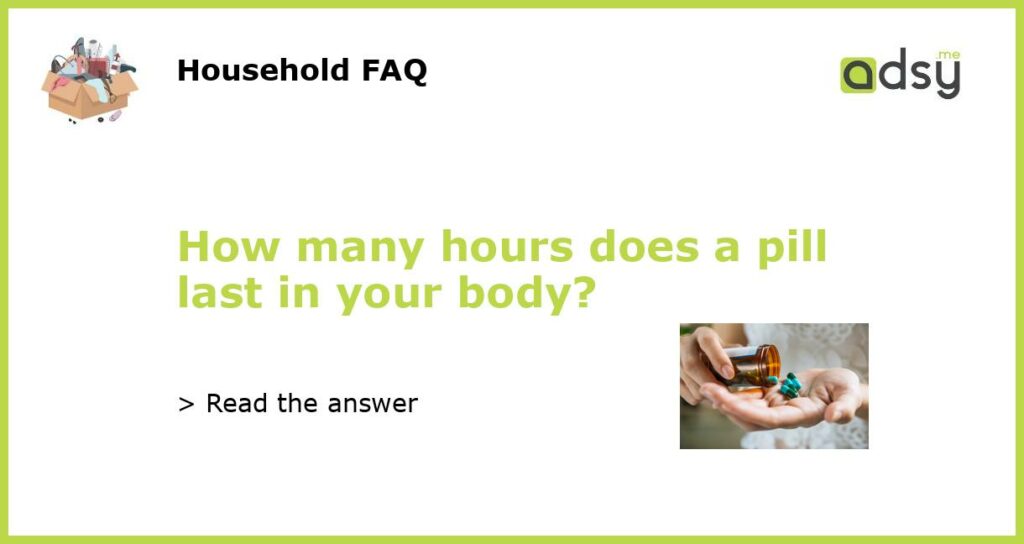How Many Hours Does a Pill Last in Your Body?
When taking medication, you may wonder how long the effects will last. The duration can vary from person to person and depends on several factors. In this article, we will explore the different factors that can influence how long a pill lasts in your body and provide some general guidelines.
Type of Medication
The type of medication you are taking plays a significant role in determining how long it remains active in your body. Different medications have different half-lives, which is the time it takes for half of the drug to be eliminated from your body.
For example, over-the-counter pain relievers like ibuprofen typically have a half-life of around 2-4 hours. This means that after 4 hours, half of the medication will have been eliminated from your body. Prescription medications can have longer half-lives, ranging from a few hours to several days.
Metabolism and Kidney Function
Your metabolism and kidney function can also affect how long medication lasts in your body. Metabolism is the process by which your body breaks down substances, including medications. Certain factors, such as age and genetics, can affect how quickly or slowly your body metabolizes drugs.
If your kidneys are not functioning properly, it can take longer for medications to be cleared from your body. This can result in the drug staying in your system for a longer duration than expected.
Dosage and Frequency
The dosage and frequency of medication can impact how long it remains active in your body. Higher doses of medication may take longer to be eliminated from your system. Similarly, if you take medication more frequently, it can accumulate in your body and take longer to be cleared.
It is important to follow the recommended dosage and frequency provided by your healthcare provider or the instructions on the medication label to ensure the drug is effective and does not build up to dangerous levels in your system.
Individual Factors
Individual factors such as age, weight, and overall health can also influence how long a pill lasts in your body. Younger individuals may metabolize medications faster than older individuals. Body weight can also affect how quickly a drug is eliminated.
If you have certain health conditions, it may affect how your body processes medications. For example, liver disease can impair drug metabolism, leading to longer drug activity in your body.
Drug Interactions
Drug interactions can affect the duration of a medication’s activity in your body. Some medications can interact with each other, either prolonging or shortening their effects. If you are taking multiple medications, it is essential to consult with your healthcare provider or pharmacist to ensure there are no adverse interactions.
Additionally, certain substances like alcohol or grapefruit juice can affect how medications are metabolized in the body.
The duration of a medication in your body depends on various factors, including the type of medication, metabolism and kidney function, dosage and frequency, individual factors, and drug interactions. It is important to follow the prescribed dosage and frequency and consult with your healthcare provider if you have any concerns about how long a pill will last in your body.






